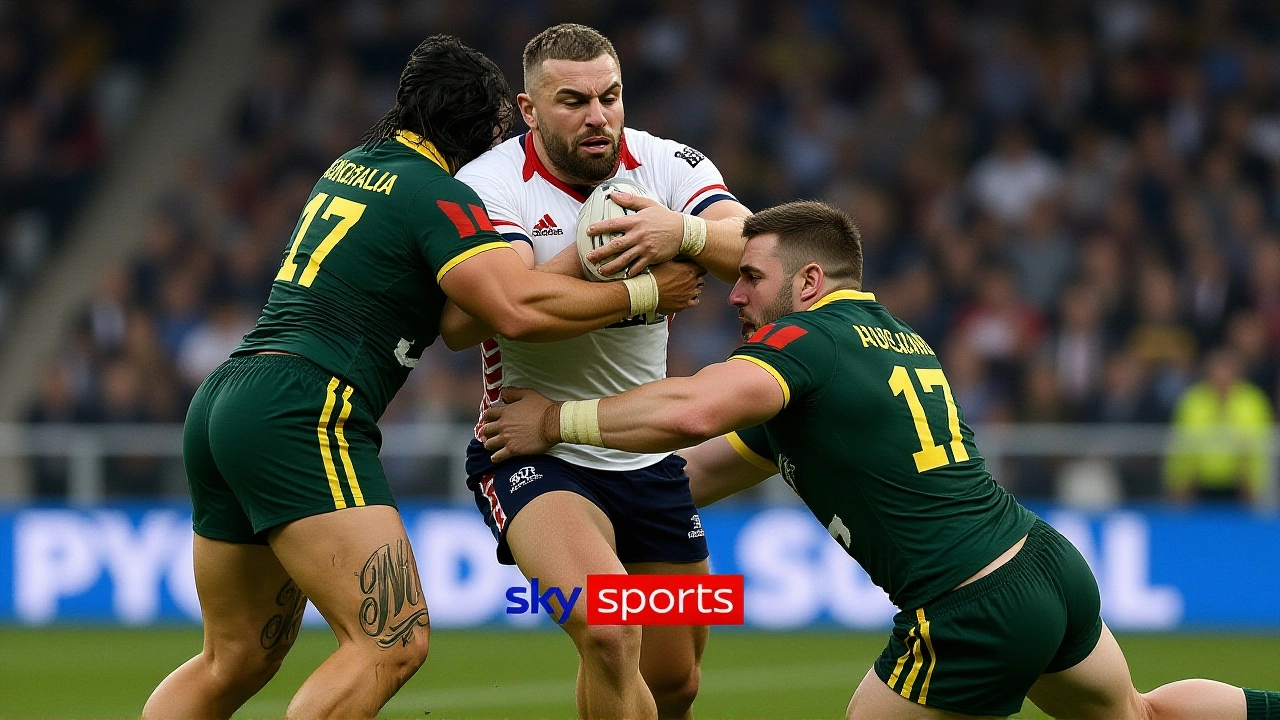England 38-18 Fiji: Hosts Extend Winning Streak to Nine with Second-Half Surge at Twickenham
England stretched their winning run to nine straight matches with a commanding 38-18 victory over Fiji on Saturday, November 8, 2025, at Allianz Stadium in Twickenham, London. The crowd of 78,678 witnessed a match that started as a bruising contest but turned into a masterclass in exploitation — England capitalizing on Fiji’s discipline breakdowns to turn a narrow 14-13 halftime lead into a decisive win. This wasn’t just another autumn international. It was redemption. After losing 30-22 to the same Fiji side at this very ground in August 2023, England came back with a vengeance — and they didn’t just win. They dismantled.
First Half: A Battle of Wills
The opening 40 minutes were everything rugby fans crave: physical, fast, and unpredictable. Fiji, led by captain Tevita Ikanivere, came out swinging. Their scrum-half, Caleb Muntz, carved through England’s defense for a try in the 22nd minute, and Ikanivere powered over just minutes later. At one point, the Flying Fijians led 13-7. England’s response came through Immanuel Feyi-Waboso, whose blistering pace on the wing turned a simple kick into a 38th-minute try. The lead changed hands three times. Neither side could claim dominance — until the 35th minute.
That’s when Selestino Ravutaumada went high on Feyi-Waboso in the air. No warning. No hesitation. Just a dangerous challenge that drew a yellow card from referee Paul Williams. The momentum shifted. Fiji, down to 14 men for the final five minutes of the half, held firm — barely. But the damage was done. The message was clear: discipline was slipping.
Second Half: England’s Ruthless Machine
Coming out of halftime, England didn’t just take control — they took over. Head coach Steve Borthwick made a calculated move, introducing five replacement forwards at the 54th minute. It wasn’t a substitution. It was a declaration of war. Within minutes, prop Ellis Genge crashed over from a rolling maul. Then came Jamie George — the hooker who’s become England’s most reliable finisher under pressure — diving over in the 60th minute.
And then, the second yellow card. Josua Tuisova, Fiji’s powerful center, was sin-binned for a late hit on Fin Smith. The crowd roared. The England bench erupted. Over the next 15 minutes, they scored three tries — a perfect storm of discipline, execution, and opportunism.
Henry Arundell sealed it in the 69th minute. Marcus Smith’s grubber kick bounced perfectly into his path. He didn’t just run — he *sprinted*, leaving two defenders grasping at air. The final try, from lock Maro Itoje in the 74th minute, was a brutal reminder: England’s set-piece power was now unstoppable.
Man of the Match and the Turning Point
Ben Earl didn’t score a try. He didn’t even kick a goal. But he was everywhere. 16 tackles. Three turnovers. A relentless presence in the breakdown. He disrupted Fiji’s rhythm when it mattered most. The Ben Earl of today isn’t just a flanker — he’s England’s heartbeat. His performance earned him Man of the Match, a nod to the quiet dominance that often decides close games — and turns them into blowouts.
Fiji’s stats tell another story. They won the collisions. They outmuscled England in the ruck. They had more carries and more meters. But discipline killed them. Two yellow cards. Five penalties conceded in the second half. Three tries gifted. As the Fiji Rugby Union admitted: "England’s ruthless finishing proved decisive."

What This Means for England
This win wasn’t just about pride. It was about momentum. England now enter their next Test against the New Zealand All Blacks with nine straight wins — their longest streak since 2016. Borthwick’s squad is evolving. The backline is faster. The forwards are heavier. And the coaching staff? They’re learning how to turn opponents’ mistakes into match-winning opportunities.
They’ve also silenced the critics who questioned their ability to close out tight games. In 2023, they lost to Fiji in a thriller. In 2025, they turned the same script into a statement.
What’s Next for Fiji?
Fiji’s three-match tour continues with away fixtures against France and Spain. They showed flashes of brilliance — Ikanivere’s two tries were vintage Fijian power. But the gap between their potential and their execution remains wide. Without better discipline, they’ll keep losing to teams who punish their errors. This wasn’t a defeat by inferior skill. It was a defeat by poor choices.
As Radio New Zealand noted, Fiji were chasing a historic sixth straight win — a milestone that now feels further away than ever.

Key Stats That Tell the Story
- England scored 24 second-half points; Fiji managed just 5.
- Fiji conceded 12 penalties in total — 8 in the second half.
- England’s six tries came from six different try-scorers — a sign of balanced attack.
- Fin Smith converted 4 of 6 tries, missing only on Itoje’s final score.
- England’s scrum won 92% of its own feed — a critical edge in the second half.
Frequently Asked Questions
How did England’s second-half substitutions change the game?
Steve Borthwick’s decision to bring on five forwards at the 54th minute shifted the physical dynamic completely. Players like Dan Cole and Tommy Freeman added weight and precision to the maul and scrum, allowing England to dominate set pieces and force Fiji into defensive errors. The substitutions weren’t about rest — they were about escalation.
Why were Fiji’s yellow cards so costly?
Fiji’s two yellow cards — to Ravutaumada and Tuisova — occurred during critical moments when they were still in the game. With 14 men, Fiji lost defensive structure and couldn’t match England’s pace in open play. The 15-minute stretch between the 59th and 74th minutes saw England score three tries and convert all three, turning a one-point lead into a 20-point cushion.
What does this result mean for England’s World Cup prospects?
Winning nine straight matches, especially against physical teams like Fiji, shows England are peaking at the right time. Their ability to close out tight games and dominate with set pieces suggests they’re building a well-rounded squad. But beating New Zealand next weekend will be the real test — and a true indicator of whether they can challenge for the 2027 title.
How does this match compare to England’s 2023 loss to Fiji?
In 2023, Fiji won 30-22 with superior ball movement and opportunistic defense. This time, England controlled territory, punished indiscipline, and used their forward power to grind Fiji down. The same venue, same opponent — but a completely different outcome. It shows how much England’s game plan has matured under Borthwick.
Who were the standout players for Fiji?
Tevita Ikanivere was exceptional, scoring two tries and leading by example in the scrum. Caleb Muntz kept Fiji in the game with his kicking and playmaking, and winger Peceli Yato made several dangerous runs. But without better discipline and structure, individual brilliance wasn’t enough to overcome England’s systemic advantage.
What’s next for England and Fiji?
England faces the New Zealand All Blacks at Twickenham next weekend in what’s expected to be the toughest test of their autumn campaign. Fiji travels to France on November 15, then to Spain on November 22 — both must-win games if they want to salvage pride from their tour.





